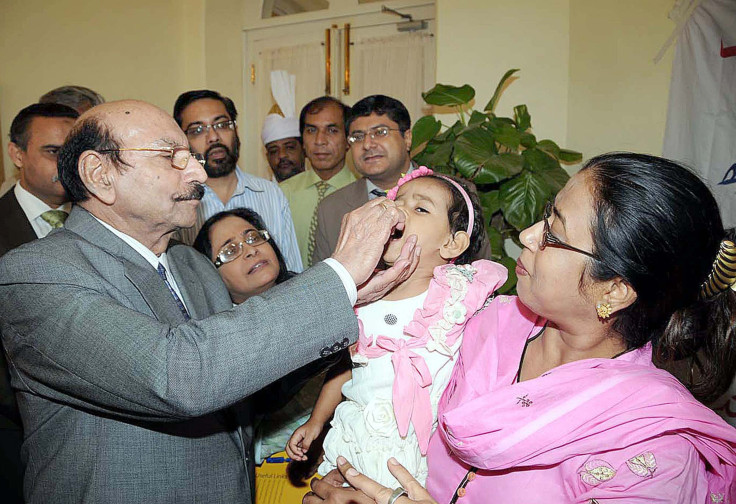First Polio Case In Kabul Since 2001; 3-Year-Old Girl From Nomadic Tribe Stricken With Crippling Disease

The Afghan capital, Kabul, hasn’t seen a case of polio since 2001 — until recently. According to the Ministry of Public Health, a 3-year-old girl, Sakhina, was diagnosed with polio Tuesday in the eastern city of Afghanistan. Though polio remains endemic in Afghanistan, the capital city has largely remained free of the virus.
As a result of the case, the Ministry of Health has ordered a three-day vaccination campaign to ensure all children in the area are immunized to the disease, which mostly affects young children.
“When they went to the hospital after an examination, it became clear it was a case of polio,” the Ministry of Health spokesman, Kaneshka Baktash, told Reuters. The girl’s family reportedly moved between Afghanistan and Pakistan, and Baktash believes she may have gotten infected across the border. Sakhina is a member of the Kuchi nomadic tribe, which often moves between provinces in Afghanistan.
Polio, or poliomyelitis, is a “crippling and potentially fatal infectious disease,” according to the Centers for Disease Control and Prevention. Though there is no cure for polio, vaccines are effective in preventing the disease from progressing. Polio is caused by a virus that attacks the spinal cord and brain and ultimately causes paralysis and even death, if breathing muscles are paralyzed.
Globally, polio cases have decreased by 99 percent since 1988. Thanks to vaccination efforts, polio has been eradicated in most countries across the world but remains endemic in three: Afghanistan, Pakistan, and Nigeria. The virus has also re-emerged in Syria, threatening hundreds of children in rural areas who are cut off from proper medical aid and vaccination efforts due to the ongoing civil war, which has been tearing the country apart since 2011.
Most polio cases in Afghanistan are traced back to Peshawar, a city in northwestern Pakistan that is considered the world’s “largest reservoir” of polio, according to the World Health Organization (WHO). In January, the WHO announced that almost every 2013 polio case in Pakistan could be linked to the virus strains in Peshawar. However, despite the desperate need to vaccinate children in Pakistan, immunization campaigns often face difficult challenges in implementing their goals due to widespread belief in rural areas that vaccines are immoral or dangerous. Campaign workers have been targeted by militants, ever since the U.S. launched a "fake" polio campaign to collect DNA samples during their search for Osama bin Laden. Because of that, many Pakistanis believe polio vaccination workers are spies. Dozens have been killed during their campaigns. In Syria, campaign workers also face similar challenges, especially in getting access to rural areas controlled by government or rebel armies.



























